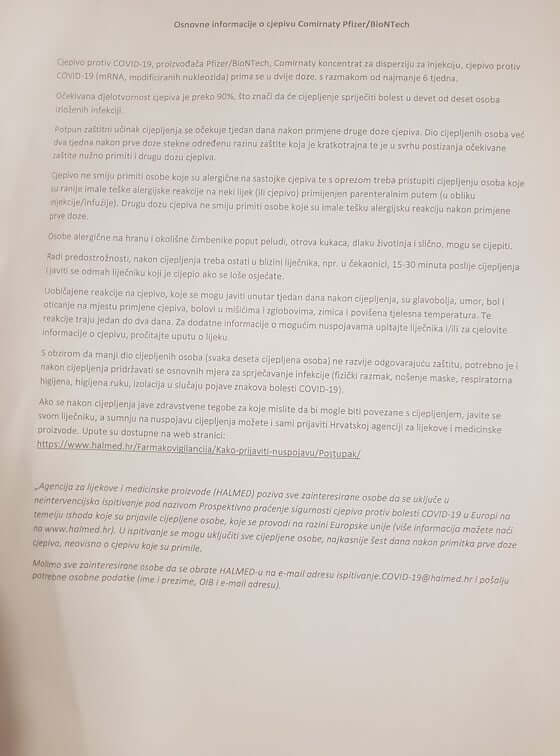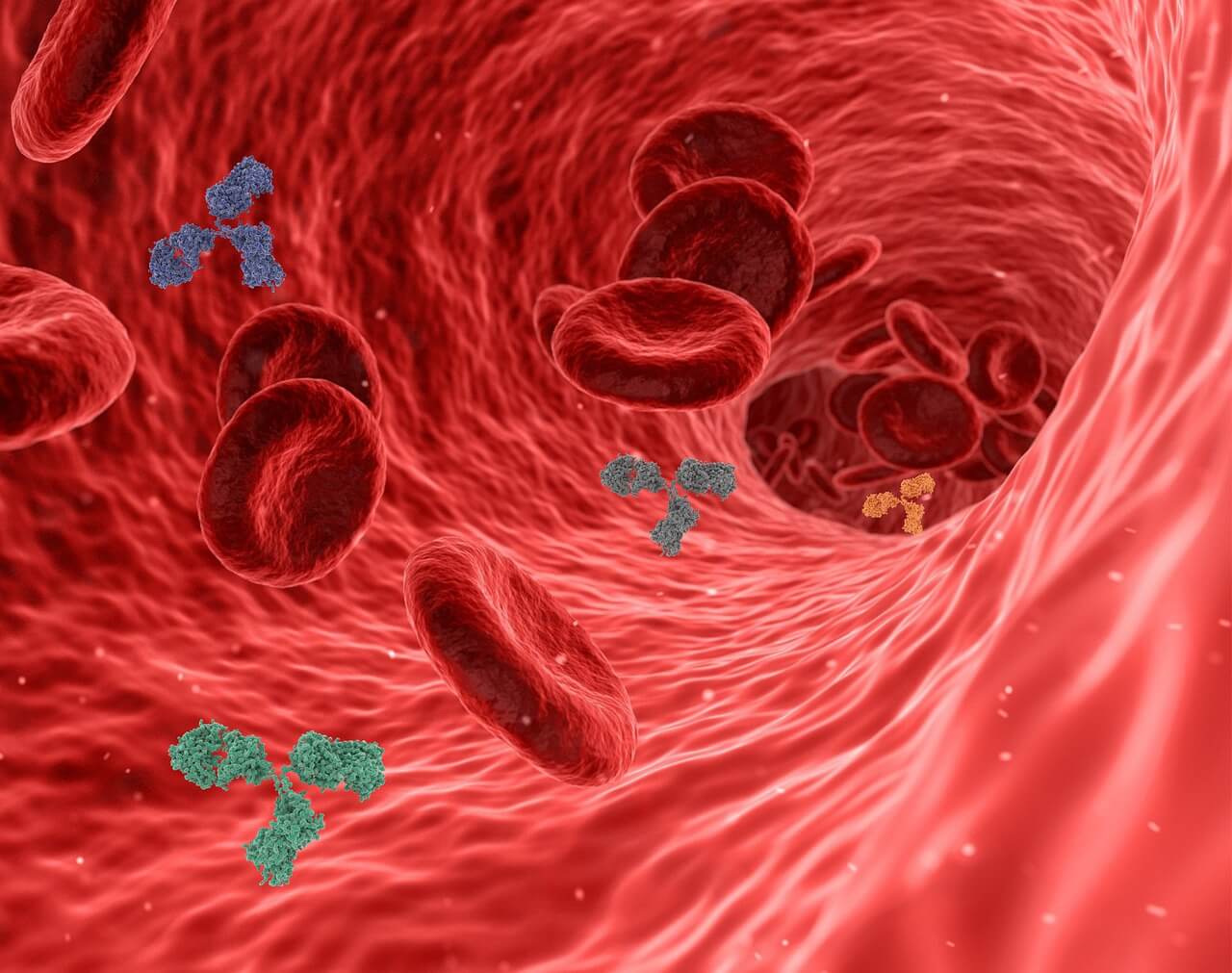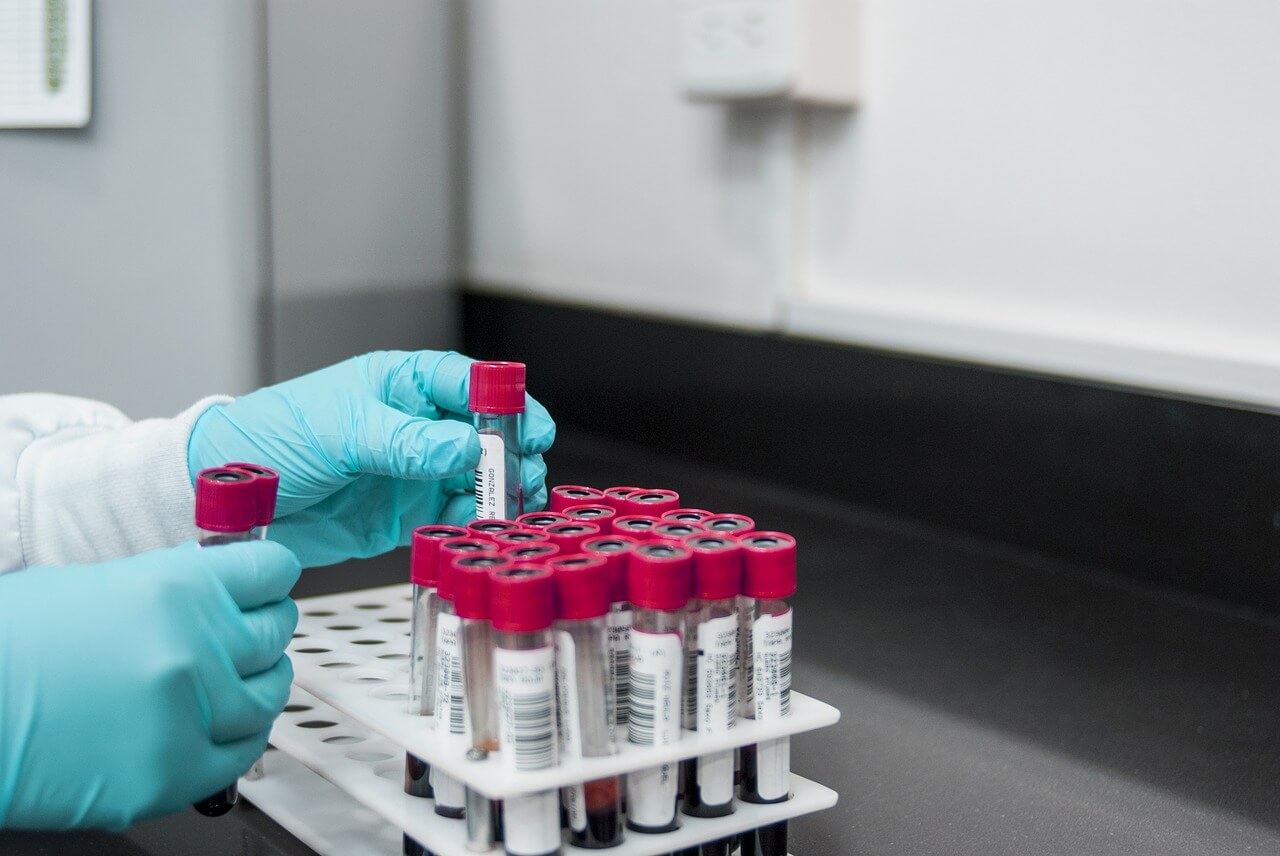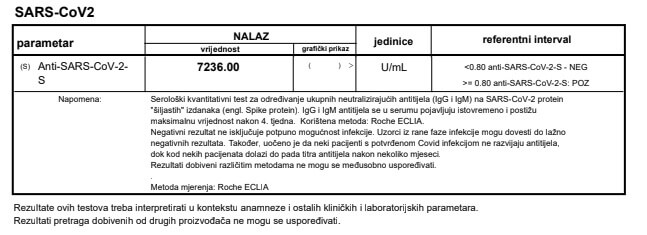Croatia Registers 247 New Coronavirus Cases, 3 Deaths
ZAGREB, 5 Aug 2021 - Over the past 24 hours, Croatia has registered 247 new coronavirus cases and three related deaths, the national coronavirus crisis management team said on Thursday.
There are 154 hospitalized patients, including 14 who are on ventilators. The number of active cases today stands at 1,221, and 4,048 people are in self-isolation.
To date, Croatia has registered 364,491 coronavirus infections, including 8,270 deaths and 355,000 recoveries, of which 170 in the last 24 hours.
A total of 2,332,341 people have been tested to date, 8,044 of whom over the past 24 hours.
As of 4 August, 3,109,586 vaccine doses have been administered, with 40.8% of the total population and 49.1% of the adult population having been vaccinated.
A total of 1,656,936 persons have been vaccinated with at least one dose and 1,506,706 of them have been fully vaccinated, which represents 44.7% of the adult population.
For all you need to know about coronavirus specific to Croatia, including travel, border, and quarantine rules, as well as the locations of vaccination points and testing centers across the country, make sure to bookmark our dedicated COVID-19 section and select your preferred language.
Croatia Logs 271 New Coronavirus Cases, No Deaths
ZAGREB, 4 Aug, 2021 - In the past 24 hours, 271 coronavirus cases have been registered in Croatia and there have been no deaths, the national COVID-19 crisis management team said on Wednesday.
The number of active cases is 1,147, including 153 hospitalised patients, 12 of whom are on ventilators, while 3,925 persons are self-isolating.
Croatia has registered 364,244 coronavirus cases to date, including 8,267 deaths and 354,830 recoveries, of which 135 in the past 24 hours.
To date, 2,324,297 persons have been tested for the virus, including 7,996 in the past 24 hours.
Croatia has vaccinated 40.7% of its population, including 49% of adults, 44.48% of whom have completed vaccination.
For more about COVID-19 in Croatia, follow TCN's dedicated page.
Croatia Logs 186 New COVID-19 Cases, One Death
ZAGREB, 3 Aug, 2021 - Croatia has registered 186 new coronavirus cases and one COVID-19-related death in the last 24 hours, the national coronavirus response team said on Tuesday.
The number of active cases currently stands at 1011. Of them, 149 people are receiving hospital treatment, including 11 on ventilators.
Since the outbreak of the epidemic in the country in late February 2020, a total of 363,973 people have been registered as having contracted the virus, of whom 8,267 have died and 354,695 have recovered, including 127 in the last 24 hours.
Currently 4,114 people are self-isolating.
A total of 2,316,301 people have been tested to date, including 7,341 in the last 24 hours.
By 2 August, 3,091,467 doses of vaccine had been administered, with 40.7 percent of the total population and 48.9 percent of the adult population having been vaccinated.
A total of 1,650,326 people have been vaccinated with at least one dose, while 1,493,859 people, or 44.33 percent of the adult population, have been fully vaccinated.
For more about COVID-19 in Croatia, follow TCN's dedicated page.
Croatia Logs 29 New COVID-19 Cases, Three Deaths
ZAGREB, 2 Aug 2021 - Croatia has registered 29 new coronavirus cases and three COVID-19-related deaths in the last 24 hours, the national coronavirus response team said on Monday.
The number of active cases currently stands at 953. Of them, 156 people are receiving hospital treatment, including 13 on ventilators.
Since the outbreak of the epidemic in the country in late February 2020, a total of 363,787 people have been registered as having contracted the novel virus, of whom 8,266 have died and 354,568 have recovered, including 175 in the last 24 hours.
Currently, 4,326 people are self-isolating.
A total of 2,308,960 people have been tested to date, including 3,243 in the last 24 hours.
By 1 August, 3,080,719 doses of vaccine had been administered, with 40.6 percent of the total population and 48.8 percent of the adult population having been vaccinated. A total of 1,647,156 people have been inoculated with at least one dose, while 1,485,510 people, or 44.08 percent of the adult population, have been fully inoculated.
For all you need to know about coronavirus specific to Croatia, including travel, border, and quarantine rules, as well as the locations of vaccination points and testing centers across the country, make sure to bookmark our dedicated COVID-19 section and select your preferred language.
Coronavirus Antibody Count: How to Check Zagreb Vaccine Results?
August 2, 2021 - With one in ten vaccinated people not developing immunity, how can we know our coronavirus antibody count? TCN reporter Ivor Kruljac found an option in Zagreb and learned whether or not his vaccination was a shot in the dark.
Given that a smaller part of vaccinated people (every 10th vaccinated person) fails to develop proper protection, it's necessary to adhere to the basic measures to prevent infection (maintaining social distancing, mask-wearing, maintaining respiratory and hand hygiene, and going into isolation in the event of the development of COVID-19 symptoms - says the paper containing some basic information about the COVID-19 vaccine I received when taking both doses.
The paper also contains info on how to report side effects and lists some common ones (headaches, developing the shakes, sore muscles, a fever that lasts for a day or two). It also assures that people allergic to food, pollen, insect bites, animal hair, and similar issues can take the vaccine, while those who had a severe reaction to the first dose should either not take the second one or approach it with caution.
With all vaccines having their alleged ups and downs, I opted for Pfizer. Why team Pfizer? Well, the more unserious reasons would be that almost everyone I know at TCN took Pfizer, and I wanted to be cool like them, and also, if it was so good that Croatian elites pushed through to take it earlier in the year, then it is probably good enough for me.

Post-vaccine information paper © Ivor Kruljac / Total Croatia News
Check the data, check yourself
But, on a serious note, as with every vaccine you choose, reading the information from the right sources (such as the WHO that started explaining the different technologies and the types of COVID-19 vaccine back in January as well as updating people about the latest info) is the best way to make the choice you feel most comfortable with.
While we witness many people refusing vaccines as they fall victim to fake news, conspiracy theories, and misinformation, some people refuse it for legitimate reasons. Those who suffer from blood clots have more than fair issues and questions about taking the vaccine.
It's worth noting that before you take the vaccine, a staff member will ask you a series of questions about your overall health (do you take any regular medications, have you already had COVID-19, do you have any chronic conditions, did you take antibiotics a month before, etc). Based on your answers, they will determine whether or not you should wait in the presence of medical staff for fifteen minutes, half an hour, or even longer following vaccination, and whether you should even take the vaccine in the first place.
Consulting with your trusty general practitioner and maybe even undergoing a physical examination ahead of vaccination is the best way to be as informed as possible to answer this series of pre-vaccine questions. Paired with general trustworthy vaccine info, your vaccine experience will likely be trouble-free.
Whether your reason for refusing the vaccine is because of a reasonable concern based on the available information and perhaps your current state of health, or because of some rather absurd misinformation, the recently developed situation in the US best presents the efficiency of the vaccine for your personal safety.
As Bloomberg reports, American president Joe Biden warned Americans that COVID-19 is now a pandemic that strikes only those who aren't vaccinated (49% of Americans have been fully vaccinated at the time of writing this article).
''We've still got a pandemic for those who haven’t gotten the vaccination. It’s that basic, it’s that simple, if you’re vaccinated, you’re not going to die,'' Biden said in late July in Cincinnati.
Choose the (un)lucky number
But, let's leave Biden for a second and get back to the issue at hand, one in ten vaccinated people, unfortunately, fails to develop protection against COVID-19. Despite my best efforts, I couldn't really find any solid medical reason as to why that is, but I'll leave that to the scientists and the doctors.
When it comes to the Pfizer vaccine, after my first dose, I felt sleepy, and the moment I came home, I took a really good nap. Was it due to the vaccine or the fact that I had an early morning appointment and I didn't get much sleep the night before? I'm not sure. As for the second dose, I was prepared for a headache and fever. It seems that these side-effects are practically unavoidable when it comes to Pfizer.
The second dose was received on July the 15th, a couple of days went by, and nothing happened. On one hand, that's great, but why am I not experiencing what the majority seem to experience following their second dose? Could it mean it isn't working? Am I number 10? If I was a medical professional I'd have been able to get the vaccine more quickly, and I would get an antibody test to get a better idea of where things stand.

Bloodstream © Pixabay
Public vaccine, private tests
The public healthcare system is one of the values Croats do like, despite their complaints. Pay your taxes and keep healthcare widely accessible. That said, sadly waiting lists can become quite long, and the overall debt left the public unsure whether the required medicines would perhaps be unavailable earlier in 2021. When it comes to non-emergency healthcare services, it may not be the worst idea to go see a private health professional (if you can afford it of course).
One such service is provided by Laboratory Breyer, founded in 1997 by a clinical chemistry specialist, Dr. Darija Breyer.
''Our motivation lies in never-ending research to better our service with the aim of increasing the care provided to our customers. Our best advertisement is the customer experience that serves as a starting point for all future appointments and is a foundation for long-lasting trust in our service. We justify the trust of our customers by expressing the highest concern for their health,'' says their official website.
The accessibility to the service is evident in Breyer now has two locations in Zagreb: Ilica 191 and Ede Murtića 9.
''Polyclinic Breyer is aimed at the customer: quality comes first with both customer and laboratory staff spaces combining maximum efficiency and modern design. Our complete service, starting from the reception to the test result is constantly re-evaluated and monitored. All personnel in both locations are included in all activities regarding quality compliance according to the written procedures and working instructions,'' they explain.
Open for communication; you can learn more and get in touch with the polyclinic here.

Blood analysis © pixabay
(Anti)body count
The informative piece of paper I received says it takes a week after the second dose to reach immunisation, and that our covid certificates for crossing borders will not allow their holders to avoid testing before two weeks from the second dose have passed. So, the plan is simple, wait two weeks and check your antibody levels.
Additionally, sometime during the late evening hours of the eleventh day after the vaccine, the side effects kicked in. I got a bit of a headache, a low-grade fever, and I experienced a bit of shaking. it was of course not all that pleasant but I welcomed it anyway. My body was reacting, and something was happening. So, should I get my antibody levels tested?
Fortunately, with a private clinic being an option, I had time to make a decision, as no appointment in advance was needed.
''How long has it been since you took the second dose?'' the Laboratory Breyer receptionist asked me when I arrived and I said I wanted coronavirus antibody count.
''Two weeks and one day,'' I replied.
''Hm, it might be a bit too early, the time period needed for immunisation can stretch for a whole month after the second dose, that's usually the best time to do the test,'' the expert kindly explained.
An expert, which I'm not, and you should always accept that you can't be good at everything and that someone always knows better than you about something. Still, I kindly asked if I could take the test anyway. Due to the journey, I'm about to take (which TCN readers will have a chance to learn a bit more about in the following weeks), I wanted to see if something had started happening in my body or not. Alright, the immunisation isn't complete, but if they find at least one little antibody in my bloodstream after two weeks, at least we'll know something had started, right?
My turn came quickly, and the nice lady asked me to take a seat and a vile of my blood was quickly taken. The needle was a bit more painful than a mosquito bite typically is, but at least there was no annoying itching afterward. They said the results would arrive in a couple of hours via email.
They carefully sealed the pierced point and suggested I take a seat in a waiting room. Careful examination of the vein a few minutes later confirmed that all was well. The test took a 220 kuna hit to my paycheck, which isn't that bad, maybe more like a slap.
The sample was taken at 11:09 AM, and results were issued at 15:03, so it was all pretty fast. Despite two weeks not being a long time, I already have 7,236 antibodies. So, the taxpayers didn't waste money on vaccinating me. Hip hip, hooray!

Vaccine efficiency confirmation, screenshot: Ivor Kruljac/TCN
Of course, vaccines don't mean you can't get sick, but the chances of death or developing a severe clinical picture are unlikely. It's nice to know that the one act that has been saving humanity from diseases for centuries works like a charm, and hopefully, more and more people will follow this positive scientific tradition and take the vaccine—both for themselves and for others.
Learn more about health in Croatia, including insurance, what to do in an emergency, and how to find dentists and doctors on our TC page.
For more about COVID-19 in Croatia, follow TCN's dedicated page and choose your preferred language.
Croatia Logs 143 New Coronavirus Cases, 4 Deaths
ZAGREB, 1 Aug, 2021 - Croatia has registered 143 new coronavirus cases and four COVID-related deaths in the last 24 hours, the national coronavirus response team said on Sunday.
The number of active cases currently stands at 1,102. Of them, 150 people are receiving hospital treatment, including 12 placed on ventilators. 4,029 people are self-isolating.
A total of 2,305,717 people have been tested to date, including 6,017 in the last 24 hours.
Since the outbreak of the epidemic in the country in late February 2020, a total of 363,758 people have been registered as having contracted the novel virus, of whom 8,263 have died and 354,393 have recovered, including 155 in the last 24 hours.
By 31 July, 3,078,364 doses of vaccine had been administered, with 40.6 percent of the total population and 48.8 percent of the adult population having been vaccinated. A total of 1,646,466 people have been inoculated with at least one dose, while 1,483,687 people, or 44.02 percent of the adult population, have been fully inoculated.
For latest COVID-19 updates, follow TCN's dedicated page.
For more about Croatia, CLICK HERE.
Croatia Logs 218 New COVID-19 Cases, Five Deaths
ZAGREB, 31 July, 2021 - Croatia has registered 218 new coronavirus cases and five COVID-related deaths in the last 24 hours, the national coronavirus response team said on Saturday.
The number of active cases currently stands at 1,118. This includes 150 people who are receiving hospital treatment, 11 of whom are on ventilators. A total of 3,920 people are in self-isolation.
Since late February 2020, when the first case was confirmed in Croatia, 363,615 people have been registered as having contracted the novel virus, of whom 8,259 have died and 354,238 have recovered, including 183 in the last 24 hours.
A total of 2,299,700 people have been tested for coronavirus to date, including 6,881 in the last 24 hours.
By 30 July, 3,068,657 doses of vaccine against COVID-19 had been administered, with 40.5 percent of the total population and 48.7 percent of the adult population having been vaccinated. A total of 1,643,402 people have been vaccinated with at least one dose and 1,476,402 of them have been fully vaccinated, which makes up 43.81 percent of the adult population.
For more on COVID-19, follow TCN's dedicated page.
For more about Croatia, CLICK HERE.
Croatia Reports 170 New Coronavirus Cases, 4 Deaths
ZAGREB, 30 July 2021 - Croatia has registered 170 new coronavirus cases and four COVID-related deaths in the last 24 hours, and currently there are 1,088 active cases in the country, Health Minister Vili Beroš said at a press conference of the national coronavirus response team on Friday.
This is a slight decrease in the number of new cases compared with 176 cases registered seven days ago. "What the future trends will be like depends on ourselves alone," Beroš said.
In the last 14 days, 2,009 new cases have been recorded, which puts the 14-day incidence rate per 100,000 population at 49.1.
A total of 5,397 persons have been tested for coronavirus in the last 24 hours and 3.15 percent of the tests have returned positive.
Currently, 154 people are receiving hospital treatment, five more than on Thursday, and 12 of them are on ventilators. In the last 24 hours, 25 new COVID patients have been admitted to hospitals and 15 have been discharged.
The four persons who have died were at an advanced age and were not vaccinated, Beroš warned.
Since the outbreak of the epidemic in Croatia in late February last year, 8,254 people have died from COVID-19.
By 29 July, 3,057,321 doses of vaccine against COVID-19 had been administered, with 1,639,095 people having been vaccinated, which is 40.4 percent of the total population and 48.6 percent of the adult population. 36.18 percent of the total population and 43.57 percent of the adult population have been fully inoculated.
Follow the latest travel updates and COVID-19 news from Croatia HERE.
Croatia Logs 198 New Coronavirus Cases, 2 Fatalities
ZAGREB, 28 July, 2021 - In the past 24 hours Croatia has registered 198 new cases of coronavirus and two people have died as a consequence amid 1,042 active cases, the national COVID response team reported on Wednesday.
There are currently 143 hospitalised patients and 11 of them are on ventilators.
A total of 146 people have recovered over the past 24 hours and 3,267 people are currently self-isolating.
Since 25 February 2020, when the first case of the contagion was identified in Croatia, there have been a total of 363,039 people infected with the novel coronavirus, of whom 8,249 people have died and 353,748 have recovered, 125 of them in the past 24 hours.
To date, a total of 2,281,574 tests have been conducted, including 6,141 taken in the past 24 hours.
By 27 July, a total of 3,031,563 doses of vaccines had been administered, with 40.1% of the total population or 48.2% of the adult population having been inoculated.
Altogether, 1,628,084 people have received at least one vaccine dose, of whom 1,450,537 have been fully inoculated (1,403,476 persons have received two doses and 47,058 have received the single-dose Jannsen vaccine), which makes up 43.05% of the adult population.
For more about COVID-19 in Croatia, follow TCN's dedicated page.
Croatia Logs 193 New Coronavirus Cases, no Deaths
ZAGREB, 27 July, 2021 - Croatia has registered 193 new coronavirus cases and no COVID-related deaths in the last 24 hours, the national coronavirus response team said on Tuesday.
The number of active cases currently stands at 971. This includes 143 people who are receiving hospital treatment, 13 of whom are on ventilators. A total of 3,267 people are in self-isolation.
Since late February 2020, when the first case was confirmed in Croatia, 362,841 people have been registered as having contracted the novel virus, of whom 8,247 have died and 353,623 have recovered, including 146 in the last 24 hours.
A total of 2,275,433 people have been tested for coronavirus to date, including 7,393 in the last 24 hours.
By 26 July, 3,018,451 doses of vaccine against COVID-19 had been administered, with 40 percent of the total population and 48.1 percent of the adult population having been vaccinated. A total of 1,623,475 people have been vaccinated with at least one dose and 1,440,370 of them have been fully vaccinated (1,394,976 have received two doses and 45,394 have been inoculated with the single-dose Jannsen vaccine), which makes up 42.76 percent of the adult population.
For more about COVID-19 in Croatia, follow TCN's dedicated page.


